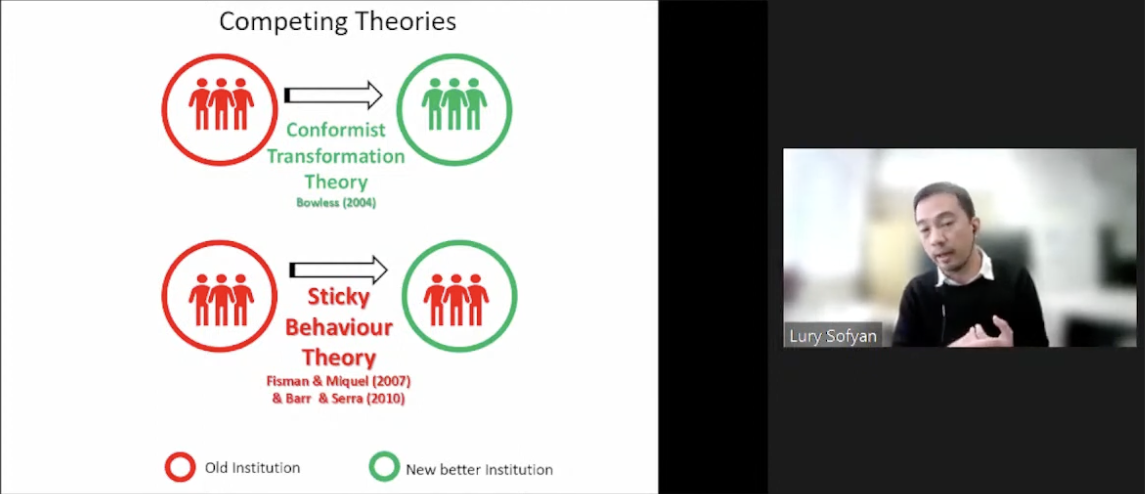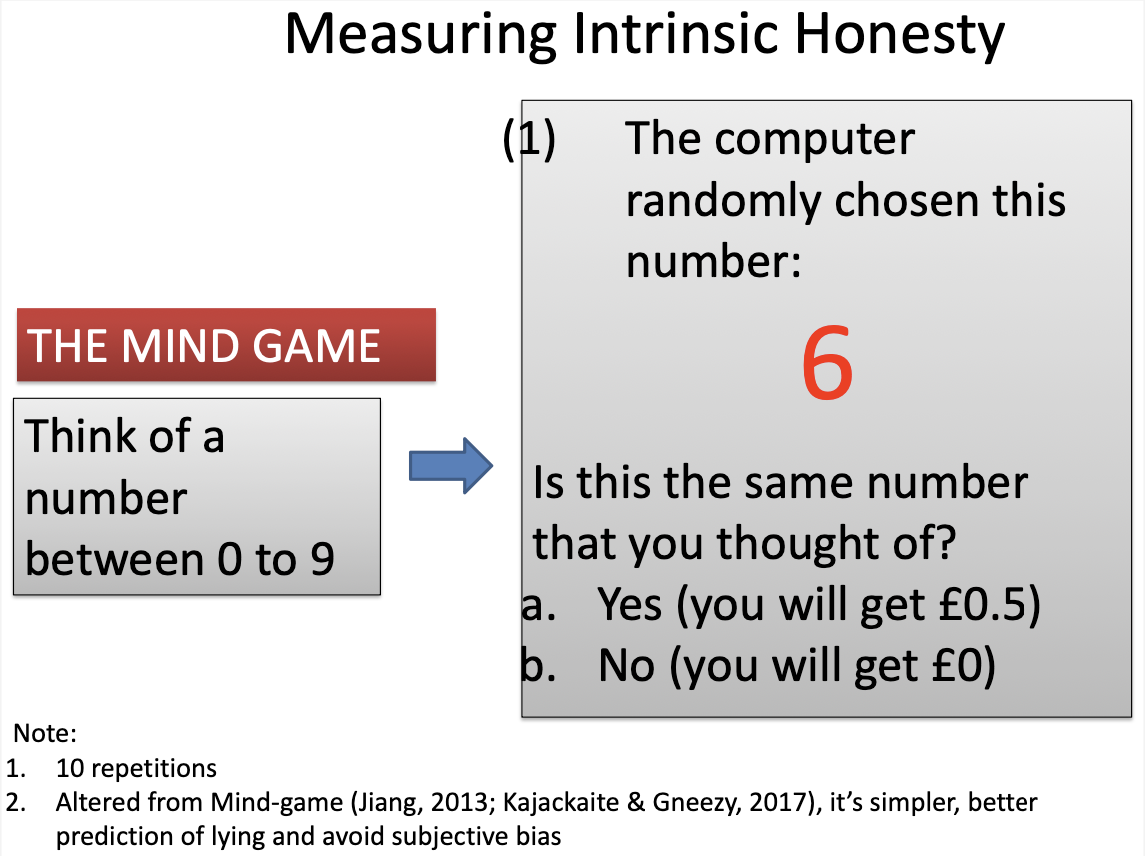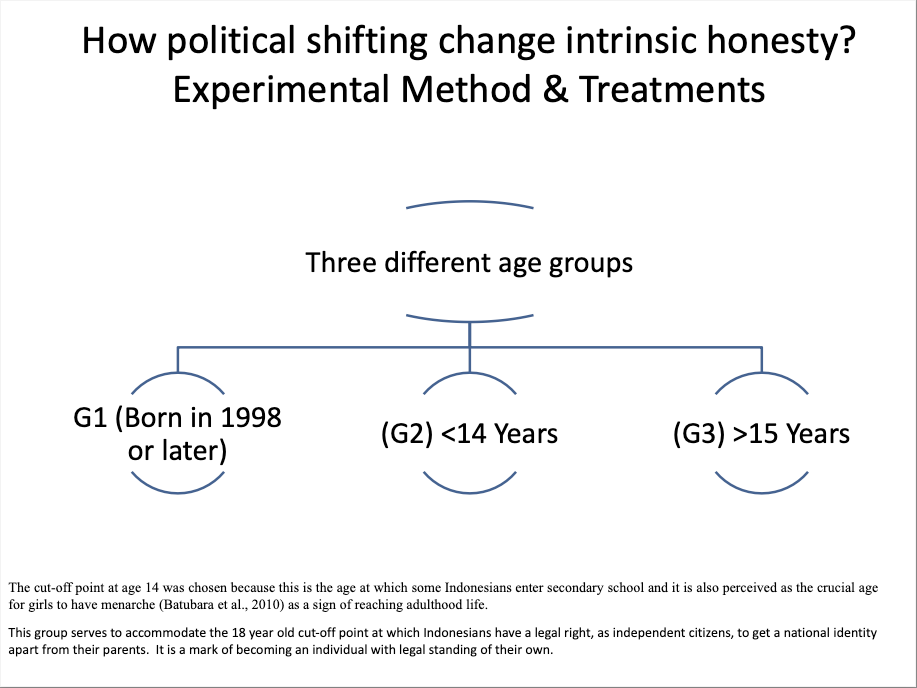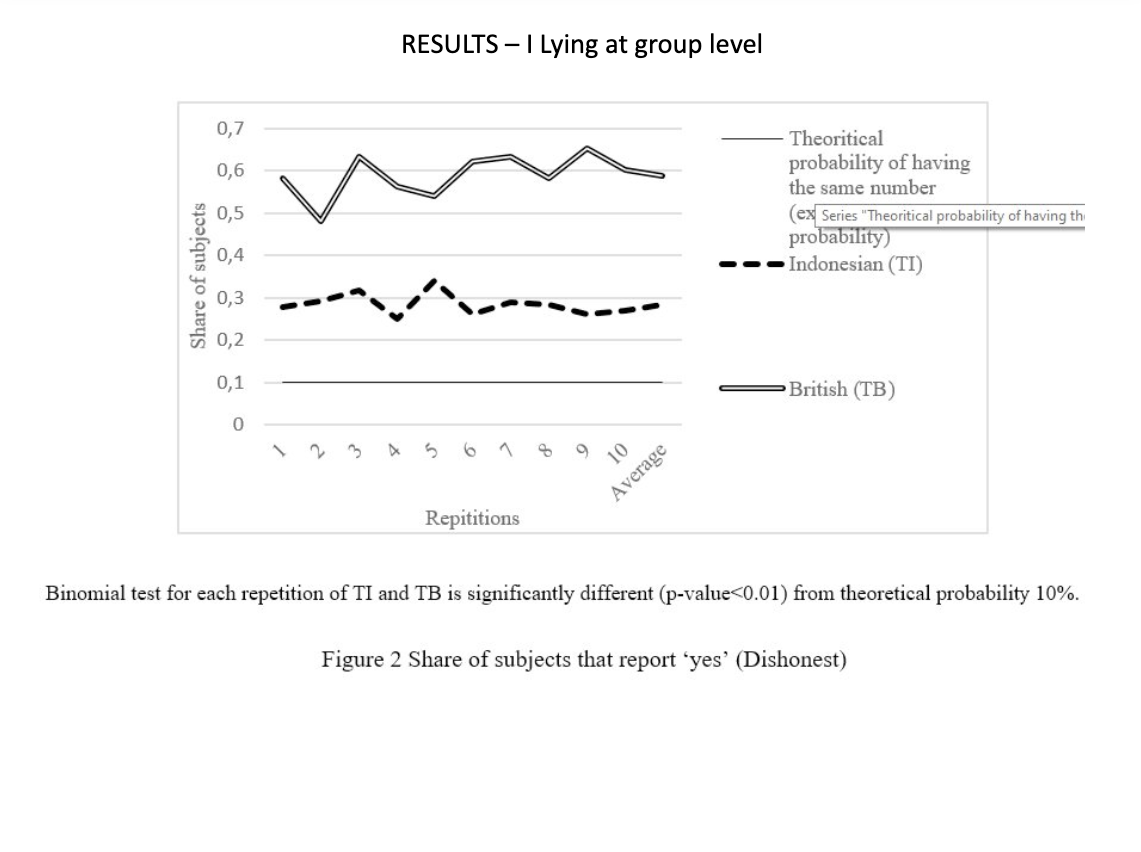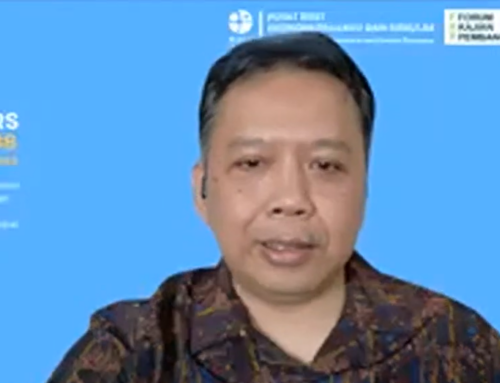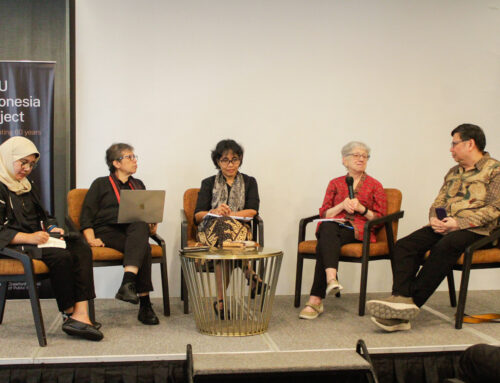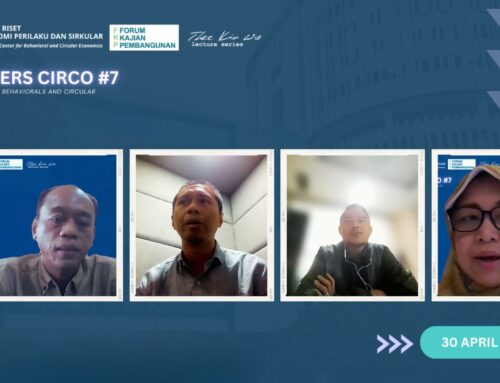FKP hosted by ANU Indonesia Project with Lury Sofyan (Indonesia Ministry of Finance). Thursday, 12 January 2023.
KEY POINTS:
- This study explores the shift from autocracy to democracy in Indonesia and how it influences individual behavior in terms of intrinsic honesty. The study utilized a mind game as a tool to test the hypothesis. The mind game method has several advantages, including the ability to identify lying at both the group and individual levels, removing the fear of detection, and being easier to conduct online.
- The study hypothesized that democracy might increase intrinsic honesty in Indonesia. However, the results showed that younger people exposed to a democratic regime exhibited higher levels of lying compared to those who lived under an authoritarian regime. This suggests that the shift to democracy did not necessarily lead to an increase in intrinsic honesty.
SUMMARY
- The current body of literature emphasizes that corrupt behavior in Indonesia has not been effectively reduced despite changes in political institutions from the kingdom era to colonial rule and independence. In this webinar, Lury Sofyan (Ministry of Finance and nudgeplus) presented a study to explore how the transition from autocracy to democracy affects individual behavior in terms of intrinsic honesty.
- Intrinsic honesty is an example of intrinsic motivation which can be defined as an internal desire to do something. It is an internal preference to choose an honest decision regardless of the financial consequences of doing so. It is an honest behavior that is triggered by self-motivation, in the absence of any kind of monitoring or observation. This study hypothesizes that democracy might increase intrinsic honesty. Previous studies show that democracy promotes productivity, participation and cooperation. Democracy also creates higher levels of government accountability and hence could boost citizens’ trust. Institution quality is found to have a positive correlation with the level of honesty in a society.
- In this study, the mind game is used as a tool to test the study hypothesis. The game required respondents to think of a number and report if it matched the number generated randomly by the computer. Consistently reporting a match, or reporting a match for most of the time, was considered as an indication of lying as the likelihood of matching the randomly-generated number becomes increasingly very small. This mind game method has several advantages, including the ability to identify lying at both the group and individual levels. This method also removes the fear of detection, allowing participants to be more honest. Additionally, this method can be conducted online, which enhances anonymity and makes it more accessible to participants. Lastly, the mind game method is generally simpler and more cost-effective than other methods of detecting lying.
- To determine the effect of political shift (from autocracy to democracy) on intrinsic honesty, this experiment is tested on three different age groups based on their exposure to each regime. The first group, G1, consisted of those born in 1998 or later, who had never witnessed Soeharto’s presidency. Their level of intrinsic honesty was compared with those in groups G2 and G3. Group G2 included individuals who were a maximum of 14 years old in 1998, a crucial age when Indonesian students typically begin secondary school and are perceived to reach adulthood. Group G3 aimed to include participants who had reached adulthood in terms of legal standing.
- The game yielded several findings, described below.
- There is a significant difference in the level of lying between G1 and G2. The younger population in G1, born in 1998 and exposed to a democratic regime, exhibited higher levels of lying compared to those in G2 and G3, who lived under an authoritarian regime.
- The difference in lying between G2 and G3 was not significant, implying that as Indonesian students reached adulthood, their behavior became more honest, regardless of the political regime they were exposed to in their youth.
- The study suggests that as Indonesians get older, they tend to become more honest, and this trend becomes more noticeable when they leave the first age group (G1) and enter the second age group (G2). Interestingly, the proportion of people who are completely honest increases across all age groups, while the proportion of people who are completely dishonest remains constant. This suggests that younger people in G1 who were only partially honest may become fully honest as they grow older and move into G2. Once they reach G2, their honesty levels remain relatively stable, even as they get older and move into G3.
- In conclusion, at first democracy is believed to improve the quality of institutions and discourage bad behavior, leading to increased trust among people. However, in Indonesia, the shift to democracy did not necessarily lead to a decrease in corrupt behavior. Unfortunately, corrupt behavior remains a deeply ingrained part of Indonesian culture, which ultimately might compromise intrinsic honesty. Therefore, transitioning to a democratic system did not necessarily result in an increase in intrinsic honesty.
